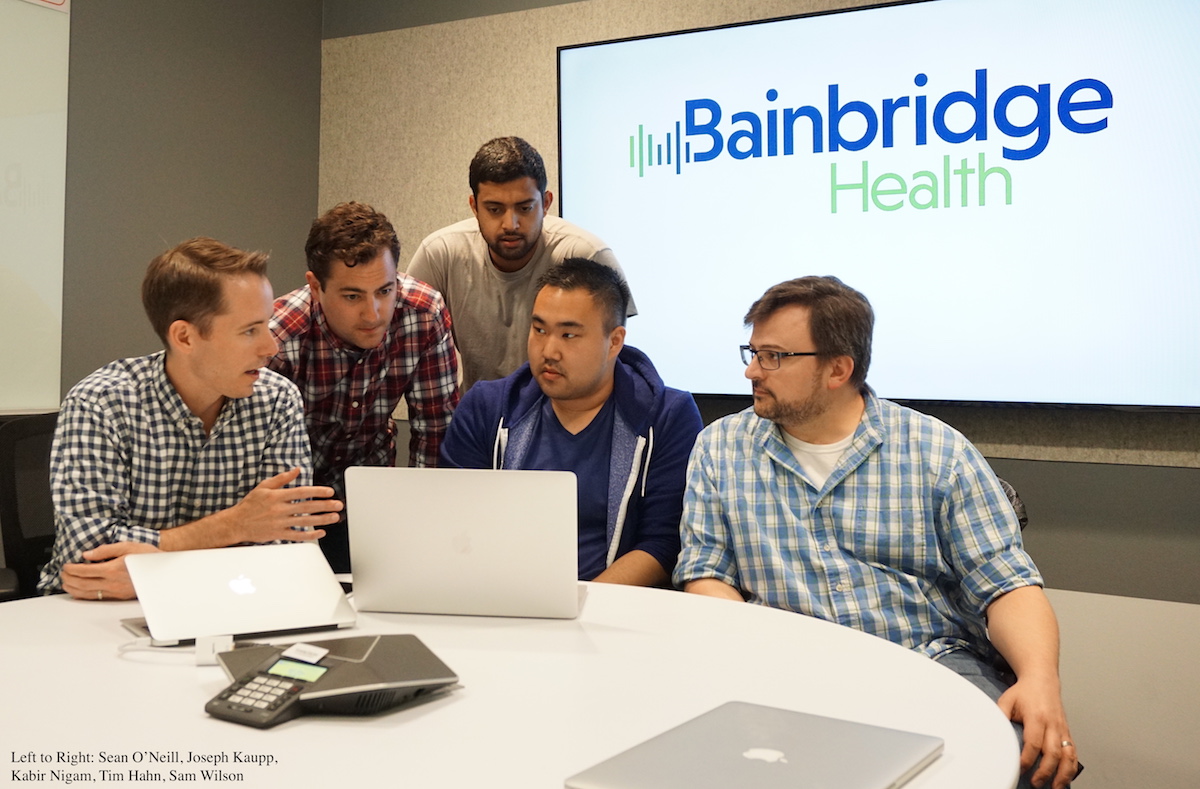Just over a year ago, we launched Bainbridge Health. Our journey has been filled with many of the experiences and, frankly, startup cliches that you might read about in business journals or watch on Shark Tank: What to include in a pitch deck. How to determine if — and how much — customers will pay for your product. How to actually build, deliver and support that product.
Although there are countless resources on startup creation from founders who are looking back after they have built successful companies, below are some of the lessons we have learned while being still very much in the trenches.
1. Stay balanced
We would love to say that every morning we do cartwheels out of our respective beds, pumped to put a dent in the universe, 24/7/365! That is not a true statement.
The emotional and physical investment required to build a company from scratch can — at times — trigger more of a lethargic crawling-out-of-bed-type morning. There are a couple of strategies, however, that we have found to help with this. First, lean on your cofounders and team members. Although these valleys are inevitable, it is rare that they beset each member of your team at the same time.
One energized colleague at this stage is enough to remind you why you gnaw through the leather straps. Second, make sure you celebrate the wins even if they seem small. If you are lucky, the road is going to be long. To thrive, you have to learn to appreciate the journey, even if you’ve not yet reached the destination.
2. Hire “coattails”
Startup success is highly contingent on a disciplined discovery about what is true: Do your customers really have a problem? Does your product really help them solve it? Does your team really have the capabilities to execute? It can be a shock to the ego, but no one person has sufficient breadth and depth to do it all, which makes the most important job of founders to build a great team.
As Napoleon Hill says, the best leaders build a “Mastermind Alliance.” So what does it actually mean to hire a great team? At Bainbridge Health, we’ve taken the “coattails” approach. We hire people who are better, faster, stronger; in other words, we recruit and retain people who are smarter than us and expand our company’s circle of competence.
If we are sitting at our Friday team meeting and we are the smartest people in the room, we’ve failed. (Luckily, we feel comfortably inferior at our team meetings!) Our advice: invert the problem at the time of hiring. How scared would you be if this candidate went to work for a competitor? If your level of scared is “terrified,” you’ve got a winner. The success we have achieved so far is a function of the team we have built.
3. Know what your role is — and isn’t
It is important to ensure that your fellow team members possess both content expertise as well as create a well-rounded personality for the company as a whole. As a specific example, all of the founders at Bainbridge Health reside on the introvert end of the personality spectrum. Although introversion can bring with it many advantages, diverse personalities are crucial for a well-functioning, high-performing organization. Too many brooding introverts or strategists aren’t going to be able to put a plan into action and back it with the requisite energy to carry it out.
This isn’t an introvert vs. extrovert debate. Both can make great leaders. But it is crucial to balance your personality in the team selection process. If your team is mainly introverted (like ours), make sure you have your “energy players,” your Draymond Green or Dennis Rodman who inherently mix things up and escalate the enthusiasm level.

4. Don’t get caught up in the hype
Finally, a word about startup hype.
There’s a ton of buzz in startupland: There’s always a disruptive new company with a team of the youngest smartest entrepreneurs with brand new mission-critical SaaS offerings operating at the bleeding-edge of medtech, cleantech and biotech. It can be really easy and enticing to believe your own press.
This may be important from a marketing perspective, but it is essential to stay grounded and humble. One of our advisors sent us a slide that showed an inverse correlation between startup publicity and startup success. It’s tempting to find pride in the “likes,” press clippings and speaking invitations. But don’t forget to stay focused on the metrics that count. In the end, if the emperor has no clothes, someone’s going to realize it.
###
Although we are still in our infancy, we are tremendously proud of the progress we have made towards building an enterprise aimed at making the hospital a safer place for patients by eliminating medication errors. We don’t have all the answers, but we are certain that our success so far has rested heavily on the mindset and tactics listed above.







